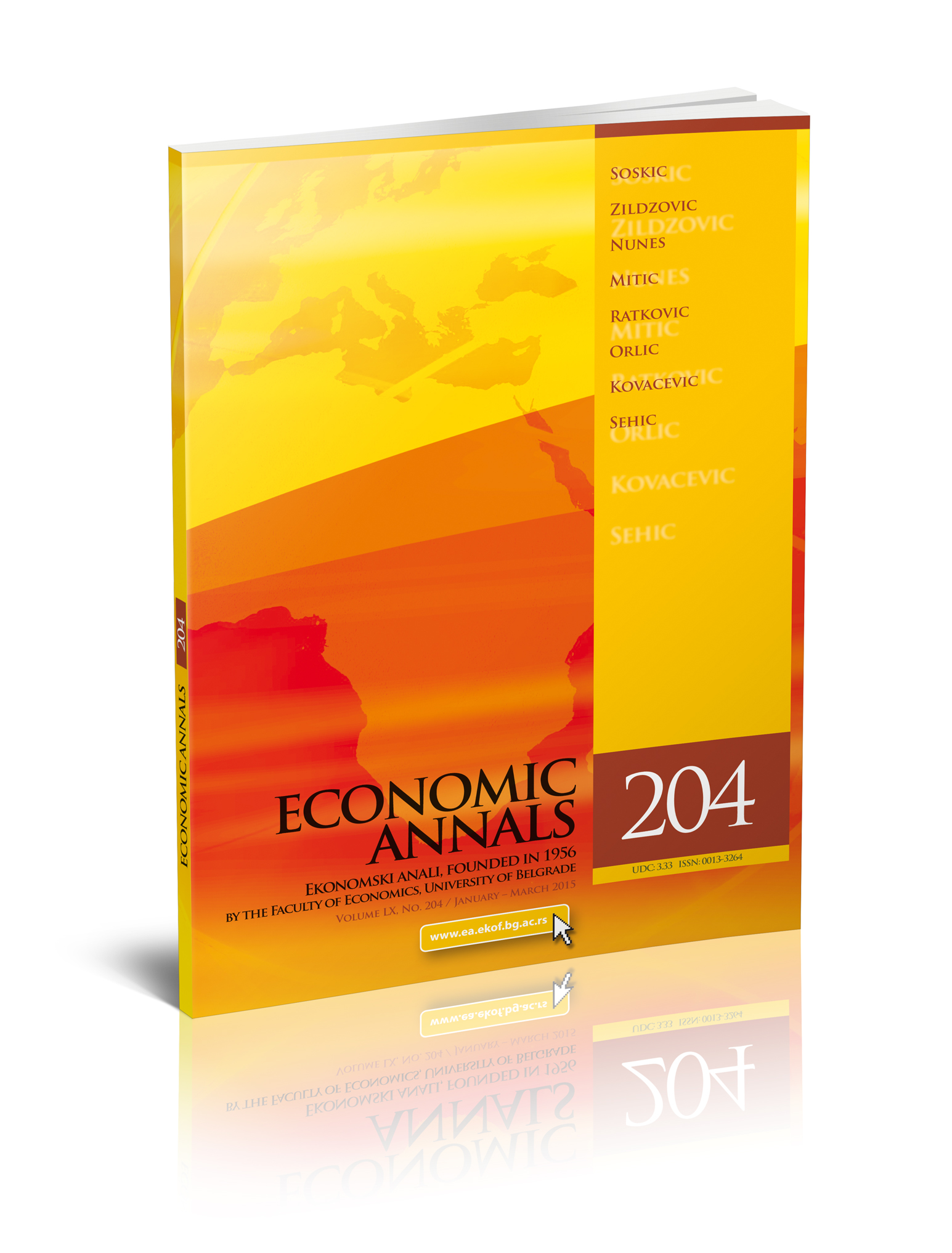THE SUSTAINABILITY OF SERBIA`S EXTERNAL POSITION: THE IMPACT OF FISCAL ADJUSTMENT AND EXTERNAL SHOCKS
##plugins.themes.bootstrap3.article.main##
##plugins.themes.bootstrap3.article.sidebar##
Emir Zildžović
Abstract
This paper studies the impact of fiscal policy and external shocks on the sustainability of Serbia’s external position. The key determinants of Serbia`s current account balance are identified using model averaging techniques and are compared with estimates obtained for other small open economies (Poland, Georgia, Morocco, Ukraine, and Estonia). The paper uses estimated influences of macrovariables on the current account balance to generate a rich set of possible outcomes for the external position of the country. The results suggest the importance of fiscal policy for the reduction of external imbalances in all countries in our sample. In particular, credible and sustained fiscal adjustment can reduce current account deficit and stabilize Serbia’s external position close to its current level over the medium term. The analysis also warns that lack of success in fiscal consolidation coupled with external shocks may easily push the external position onto an unsustainable path.
##plugins.themes.bootstrap3.article.details##
Keywords
Current account determinants, External sustainability, Model averaging, Transition countries, Fiscal policy, External shocks
JEL Classification
F32, F37, F39
Issue
Section
Articles
How to Cite
Zildžović, E. (2015). THE SUSTAINABILITY OF SERBIA`S EXTERNAL POSITION: THE IMPACT OF FISCAL ADJUSTMENT AND EXTERNAL SHOCKS. Economic Annals, 60(204), 31-60. https://doi.org/10.2298/EKA1504031Z
How to Cite
Zildžović, E. (2015). THE SUSTAINABILITY OF SERBIA`S EXTERNAL POSITION: THE IMPACT OF FISCAL ADJUSTMENT AND EXTERNAL SHOCKS. Economic Annals, 60(204), 31-60. https://doi.org/10.2298/EKA1504031Z

